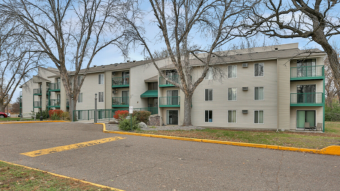Earlier this Fall, the Northern Illinois Commercial Association of Realtors (NICAR) hosted a forum that brought together Democratic and Republican representatives from the Illinois House and Senate to discuss issues and concerns facing the State of Illinois. The event, which took place at the Rosewood Restaurant in Rosemont, was hosted by Bill Caton, President of NICAR and the founder of Caton Commercial. The panel discussion was moderated by David Baum, principal, Baum Realty Group, and included Senators Pamela J. Althoff and Toi W. Hutchinson and Representatives David Harris and Sam Yingling. The conversation opened with a general discussion about the legislators’ perception of the overall business climate in Illinois. “It is very alarming to me to hear businesses say, ‘I would leave if I could,” said Representative Yingling. Businesses want to know that the state is stable, and we’re not providing that right now, he said. According to Yingling, there is a need to focus on structured business reform which could, he said, help alleviate some of the issues. For Senator Hutchinson, getting the State’s house in order is easier said than done. She did say, however, that the state needs more cheerleaders to tout what is going well in the state as opposed to being negative. She cited a few examples, like the state’s strength in biotech and a GDP that is as large as that of Turkey. “There is lots that needs to be fixed,” she said. “But when everyone is throwing bricks, when do we build houses?” Representative Harris also was a cheerleader for the state and said, “It’s a good state in which to have a business.” He specifically cited Illinois’ intermodal capabilities, its natural and cultural resources, an educated workforce and the success of 1871 in the Mart. But he also said that he doesn’t know how the state will get out of the pension mess it currently finds itself in. One matter of controversy for legislators and residents of Illinois is what happens to the tax rate after the election. The point was made that raising the taxes alone will not solve the problem, but that every one percent in personal taxes equates to $3 billion in revenue for the state. “I don’t like the tax extension,” Yingling said. “I feel it would be disingenuous to extend when we said it would only be temporary.” There was general agreement among the panelists in Yingling’s characterization of an extension being “disingenuous.” In spite of agreeing, Hutchinson said she thinks the tax will stay. “We have to get our house in order,” she repeated. But she added that the State needs to not “make the same mistakes that got us here in the first place.” Ultimately, Althoff said, the decision will be made by the Governor. But she added, “It is foolish to only talk about solving the problem as it exists today.” “The challenge,” she said, “is politics. It gets in the way. We need to solve problems, not point fingers.” The conversation also included real estate taxes. Yingling said property taxes are one of the biggest issues in the state. He noted that his district, which covers Lake County, has the 15th highest taxes in the country. “We must ask, ‘what’s wrong’,” Yingling said. He suggested that business owners be given a tax abatement to build a building. “It would help to generate and incentivize new building and expansion. For most Illinois residents, including its elected officials, pension reform is the biggest issue facing the state. And according to Althoff, it is an issue the legislature has been wrestling with for at least three years. One of the biggest issues with the pension fund issue is the legality/constitutionality of any type of resolution. The matter is before the courts and most are looking to that body to give guidance as to how the issue can be resolved. “They better come back with a framework for what is acceptable,” Yingling said. In her comments, Althoff said the reality is that if a way to resolve the crisis isn’t identified there will be an increase in taxes or a reduction in services, or both. “It’s a huge obligation,” she said. “I am hopeful that the courts will give some parameters (on how to handle). Harris agreed with the enormity of the obligation and pointed to some alarming statistics, including that because every retiree before 2011 receives an annual three percent increase, the pension fund obligation doubles every 23 years. During the discussion, Baum posed a question about tax credits that are provided, asking the panelists whether the credits are too generous or just right. Althoff expressed her “love” for the EDGE program, saying it was a necessary program when it was created to keep business in Illinois. However, she said the EDGE became a political tool, ensuring that corporations got the benefits without necessarily meeting the requirements of the program. She now advocates that businesses “prove to me what you did to earn it (the credit).” “We have to stick to the rules,” she added, and not automatically provide the benefits if businesses no longer meet the qualifications. Hutchinson also talked about the shortcomings of evaluating the effectiveness of EDGE. “We pay a lot of attention to what we appropriate, but not what we forgo,” Hutchinson said. She added that we can’t do that and get our house in order without meaningful data. Harris calls himself “a big proponent” of the EDGE tax credit saying, “We need a competitive tool.” But he explained that where it became controversial was when exceptions to rules were made and almost 10 companies were given special consideration. The issue of tax credits is no easy matter. “This issue is big and complex,” Hutchinson added. And every state, she noted, is struggling with it.
Related Articles
Chicago’s OKW Architects names president
April 24, 2024



